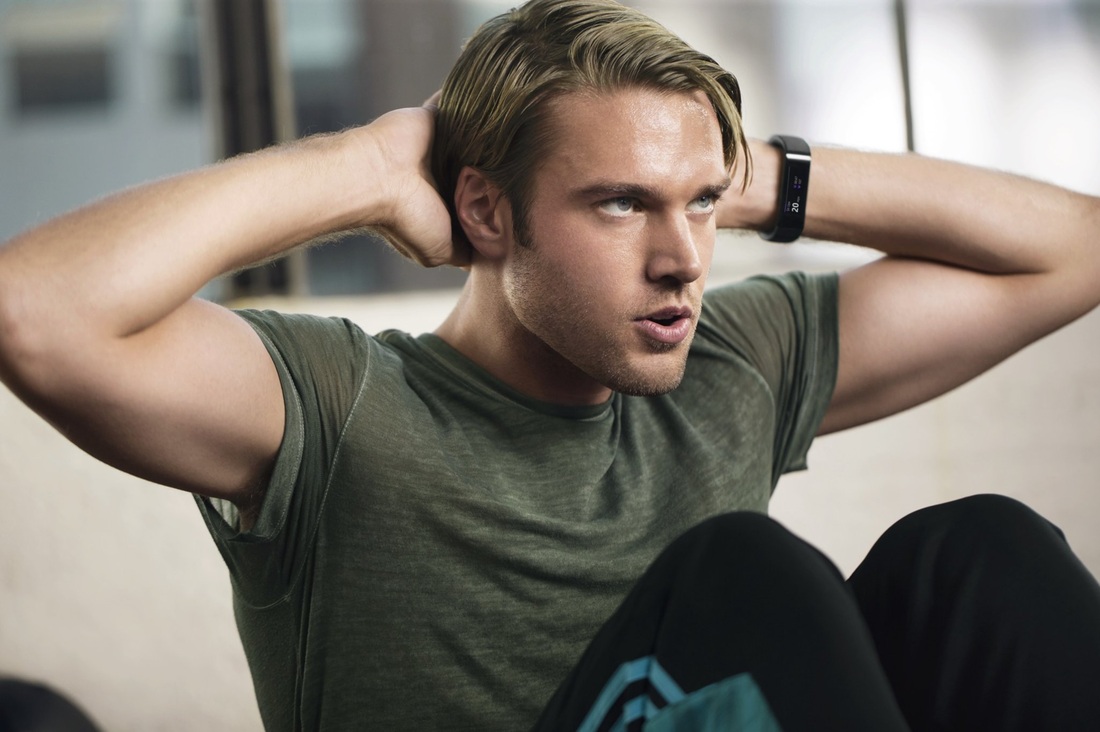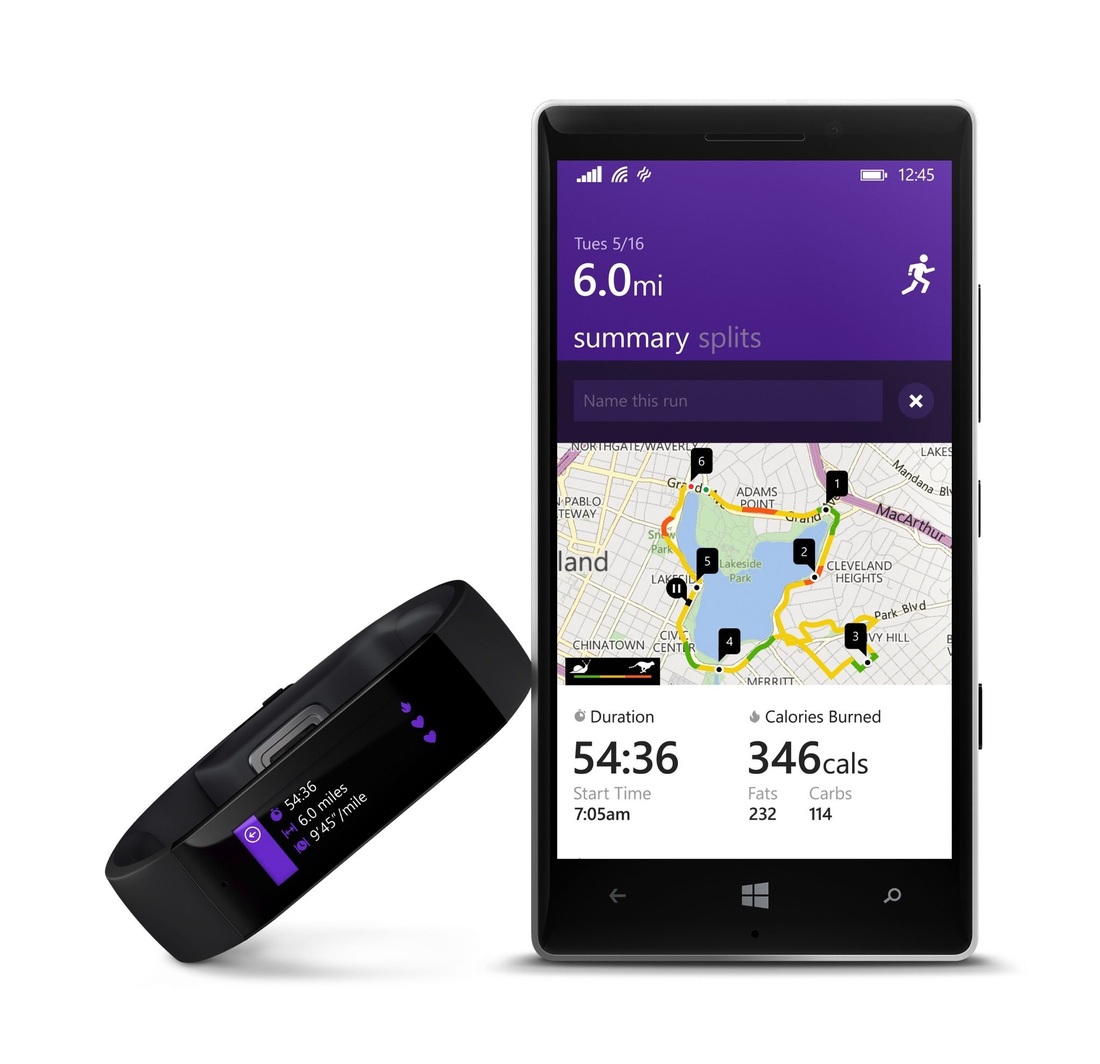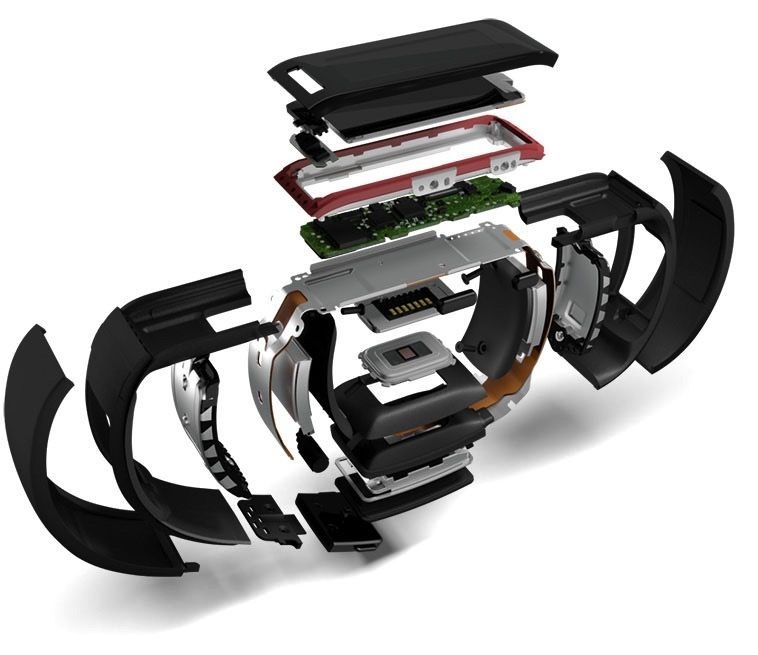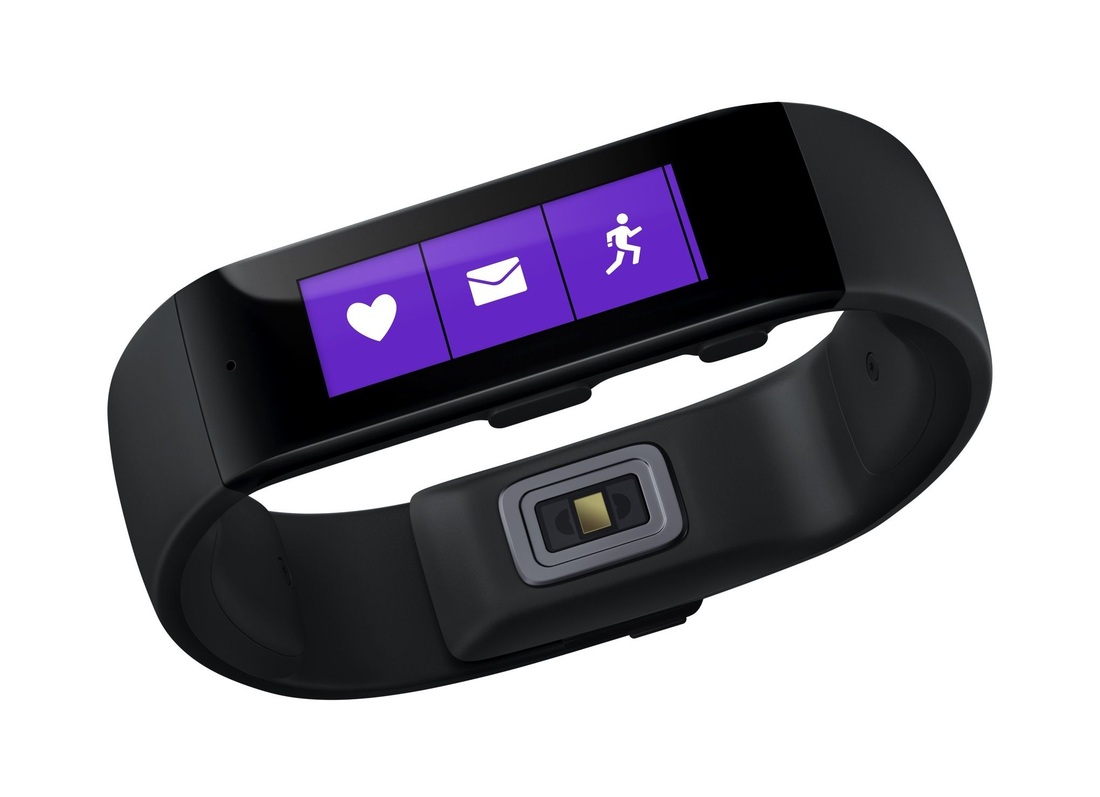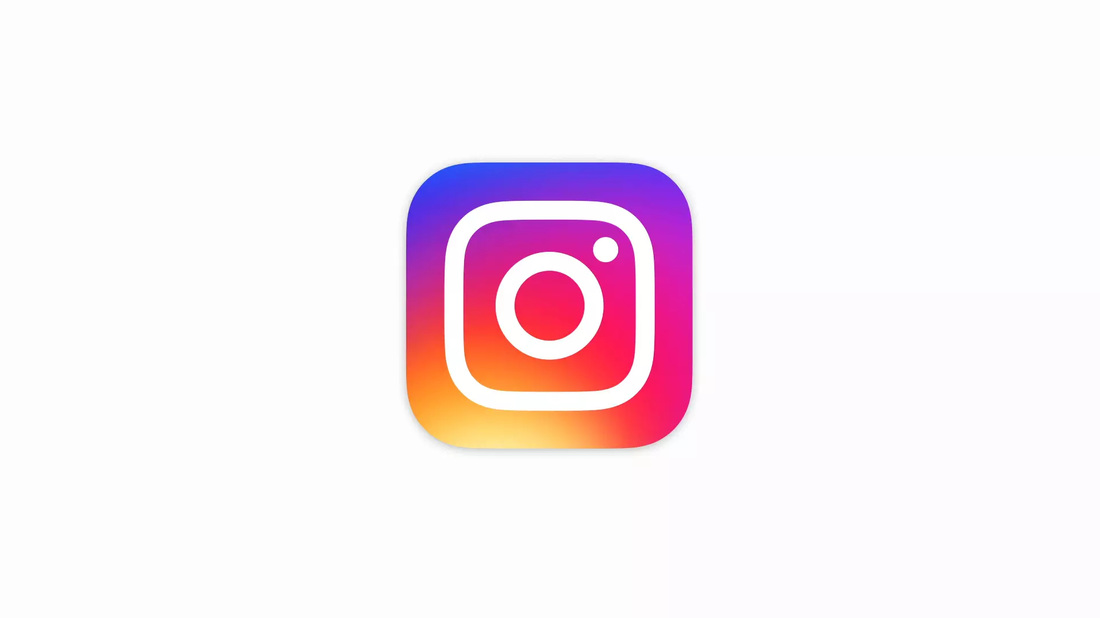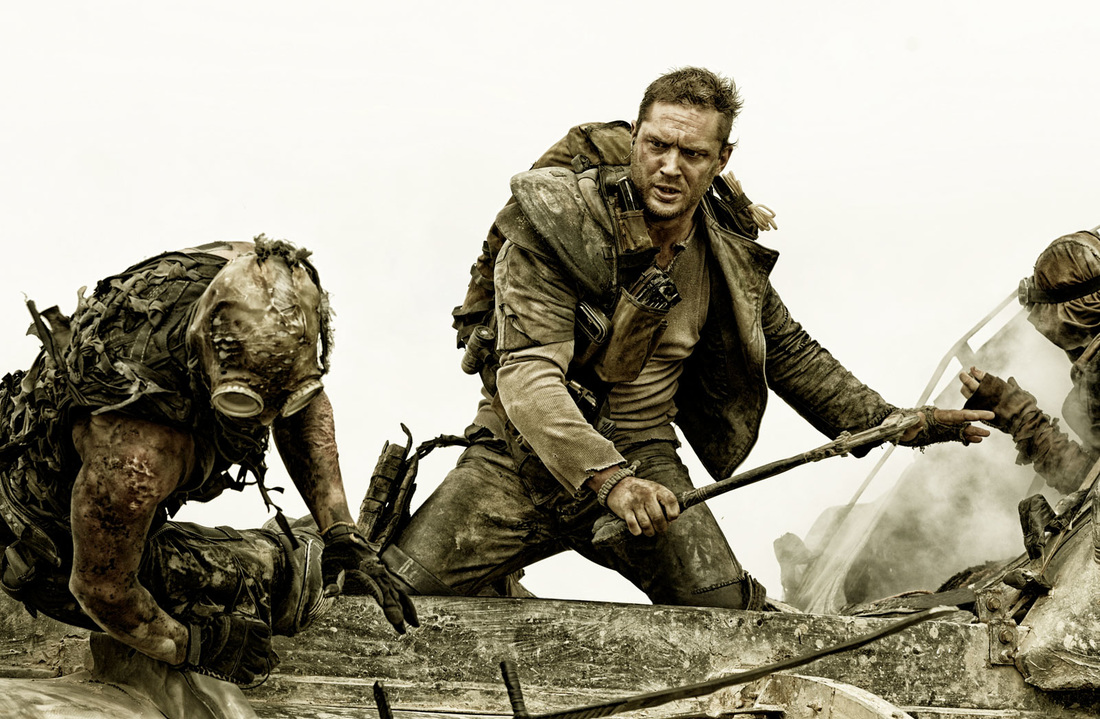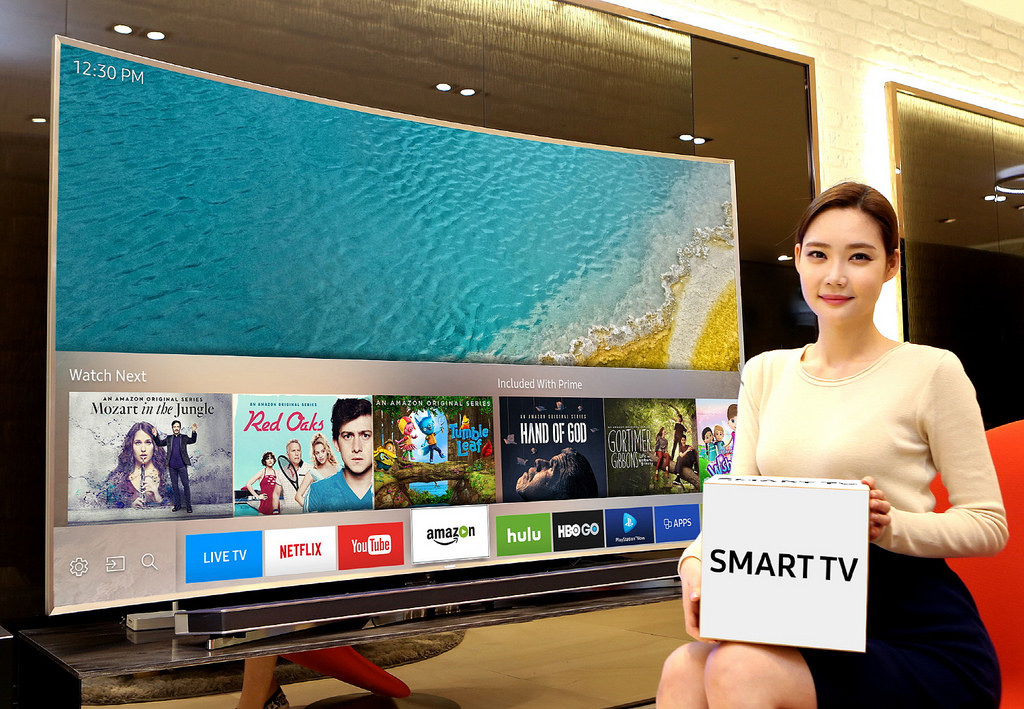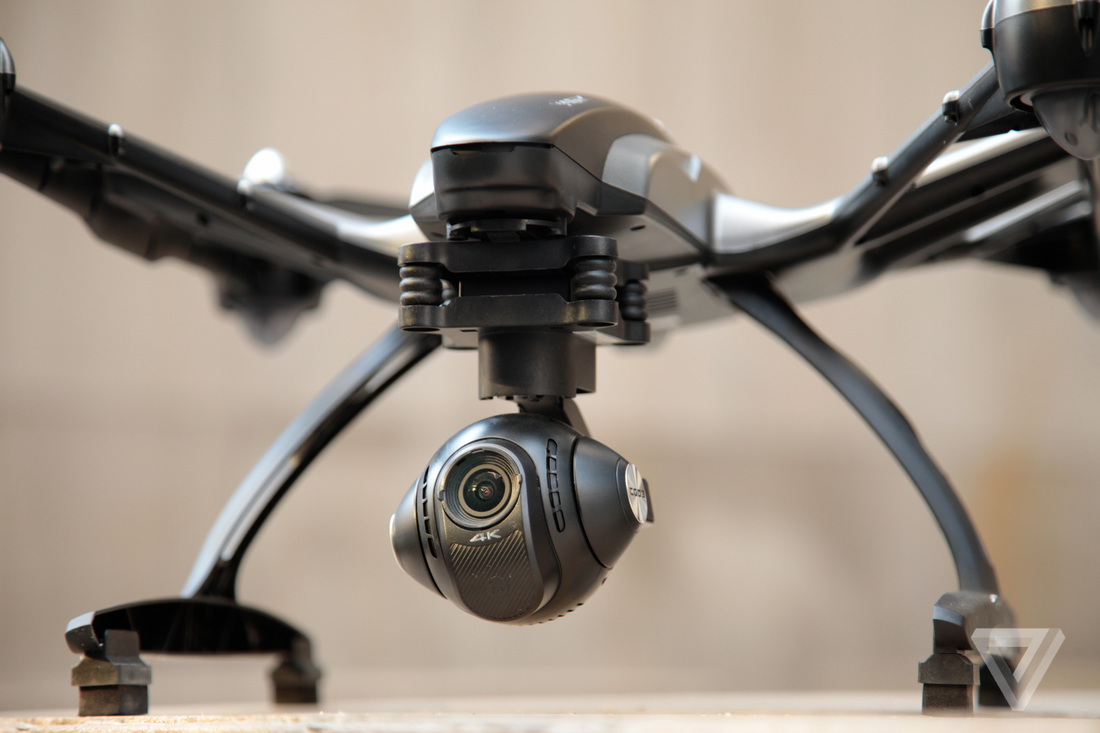Yusuf Mehdi is sitting at a conference table at the company's campus in Redmond, WA, crossed legs revealing the sneakers he's wearing, talking to me on Skype as he swipes through a presentation on his Surface. Microsoft’s Corporate Vice President of Devices and Services is explaining Microsoft Health, the company's sprawling new project: a multi-platform system for compiling and analyzing all the world's health data. Throughout our conversation, he keeps touching his right wrist. He’s wearing the new Microsoft Band, a black $199 wearable that tracks your steps, heart rate, and stride length, all while showing you text, email, and Twitter alerts. It will be available from Microsoft Stores in the US tomorrow.
Microsoft's plan is as simple as it is large: to be the central repository for all the world's fitness data, to develop and distribute the best hardware and the best software for helping people live healthier lives. It doesn't matter what platform you're on, it doesn't matter what app or device you use. Microsoft wants to be everywhere.
There's just one problem. "Most of these things are individual islands," Mehdi says — there are a million options, but they're all siloed to a single platform, app, or gadget. "You'll use device X or Y, some stuff is in the cloud, but we think that there's kind of a next step that's coming, which is the ability to unify all that data and democratize it, and then add some real value on top. And that's where we see the ability to kind of get to that next level."
That's one part of the puzzle. The second is more complicated: what do you do with all that data? Here, Microsoft's strategy is twofold. First, collect better and more accurate data. Microsoft is working with manufacturers on how to build better trackers, to do more than just tell you how today's activity compared to yesterday.
Inside the Band is what Mehdi and Zulfi Alam, General Manager of Personal Devices, say is the best collection of sensors in the industry. "It really gets to a different level on fitness, on heart rate, on calorie count, on calorie burn, on what you're doing, because of that." Rather than just use the accelerometer to count steps, the Band combines that data with your phone’s GPS data and the always-on heart-rate monitor to figure out the length of your strides, which provides a much more accurate measurement of calories burned.
It's intentionally a wristband, not a smartwatch. Microsoft didn't want to compete with the watches people already own — Mehdi and others talk about focusing on the secondary wrist with this product, not the dominant one. This is primarily a device full of sensors, meant to collect as much data as possible with as little intrusion as possible.
IT'S MADE FOR THE RIGHT WRIST, NOT THE LEFT
IT'S ABOUT THE DATA, BUT IT'S REALLY ABOUT WHAT YOU LEARN FROM THAT DATA
Microsoft Health is a machine that is always learning, that is always tuning itself to you and responding to the mass of data it receives from users. And as it learns more, it'll get more accurate and more powerful. The Band might never be able to figure out how much weight you're curling, Alam says, but you'll be able to combine heart rate with force and distance to figure out whether you're curling light or heavy. Microsoft worked with gyms and fitness magazines to develop custom workouts, which your Band can help you monitor by counting reps and telling you when to switch exercises.
Microsoft's competition is steep; every company on earth seems to have a vested interest in tracking your health. Many of those companies are big, nimble, and powerful, with as many cross-platform tools at their disposal as Microsoft does. But at the moment, the team in Redmond may have a stronger hand than any of its many competitors. Microsoft Health is available everywhere, it learns as it goes, there's a fully-developed app and plan for the service, and the team behind it is committed to making it easier for anyone to build software and hardware that offers rich data collection and powerful insights into how to be healthier.
The whole time we’re talking, Yusuf Mehdi keeps coming back to phrases like "the big idea here" and "the really exciting thing." He’s trying to keep expectations low, telling me how early Microsoft is in this process, but he can’t mask his excitement at the sheer size of this project. And he clearly thinks his team is already well down the right road.
For its first new kind of device under the leadership of Satya Nadella, Microsoft believes it's revolutionized the way we track our lives. It's cloud, and it's mobile, and it's productivity. It's the embodiment of the new Microsoft, and it is nothing if not ambitious.
